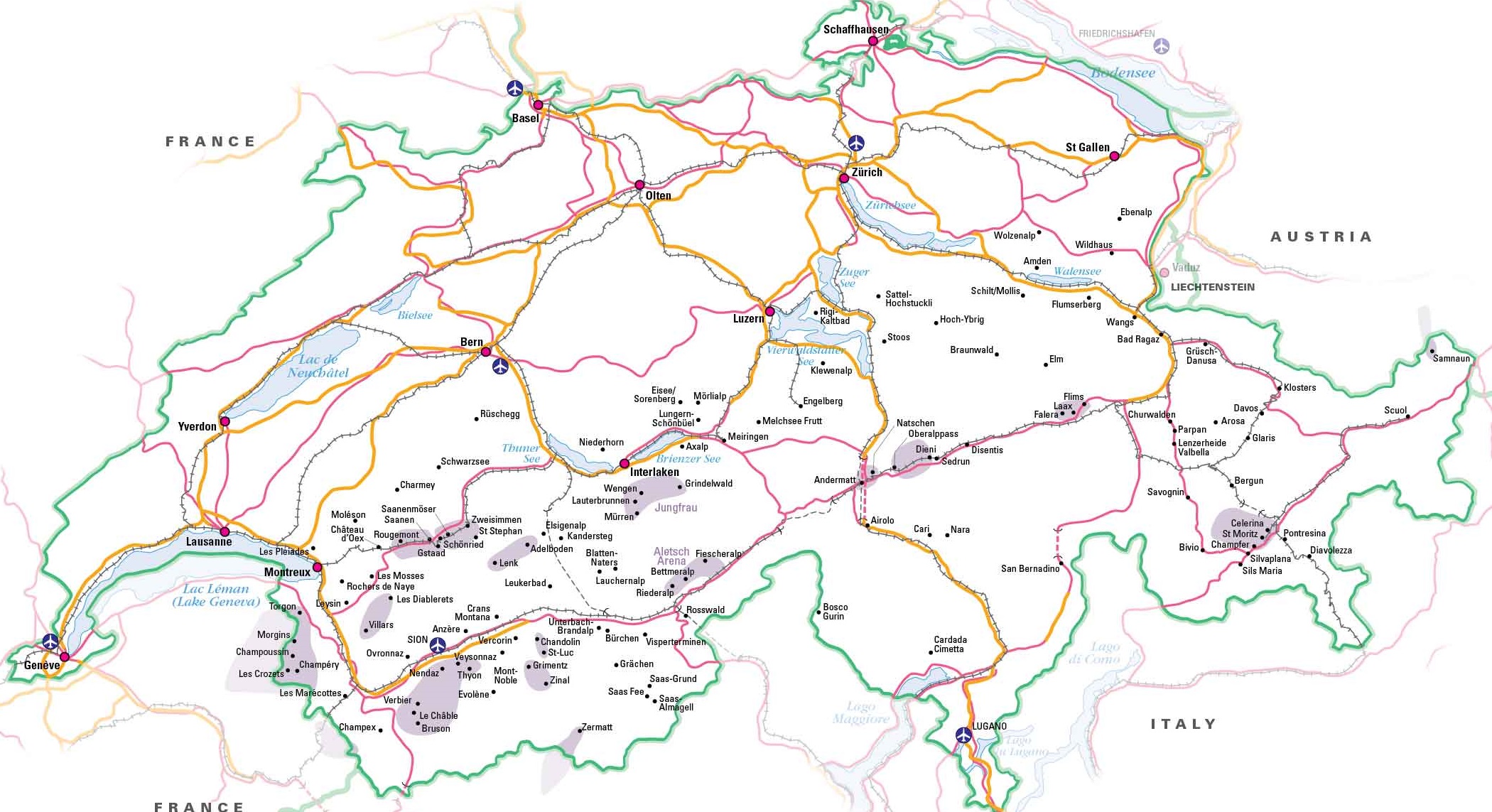Driving to the Swiss Alps
For a detailed road map please visit our map shop
Switzerland is renowned for its excellent public transport system, but its roads too are extremely well maintained meaning that those wishing to drive to their Swiss resort will not normally encounter any significant problems.
Nevertheless, if you are travelling outside the summer months you will need to plan your route carefully as many of the high road passes are closed in winter. See below for more tips about driving in the Swiss Alps.
Alpine passes
Road closures are weather dependent and there are no fixed dates but it is not uncommon for the higher passes to be impassable from as early as October to as late as June.
Passes which normally close in winter are listed below:
• Albula Pass;
• Flüela Pass;
• Furka Pass;
• Gotthard Pass;
• Grand-Saint-Bernard Pass;
• Grimsel Pass;
• Klausen Pass;
• Nufenen Pass;
• Oberalp Pass;
• San Bernardino Pass;
• Susten Pass.
Click here for more information about alpine passes.
Apart from taking a detour, alternatives to closed passes include travelling by train (LINK to Swiss: Rail page] or booking your car on one of the car trains which transport cars through the alpine tunnels.
If you do plan to drive on the alpine passes make sure your car is in excellent condition and that you have enough petrol, as there are no petrol stations on pass roads. Also be aware that some passes are not suitable for trailers and mobile homes.
Motorway vignette
A motorway vignette is required on your car if you intend to use the Swiss motorways. Vignettes are valid for multiple re-entries into Switzerland between 1st December of the previous year and 31st January of the following year (printed on the vignette). If taking a trailer or a caravan, you will need to purchase an extra vignette.
Swiss rental cars will already have a vignette; otherwise you can purchase vignettes online or at the border. Purchasing a Swiss Half Fare Card will also get you discounts on cable cars.
Equipment
• Warning triangle. This must be at hand (it may not be carried in the boot). It must be used in case of an accident or if your car breaks down.
• First aid kit (recommended)
• Fire extinguisher (recommended)
Winter driving
In general snow tyres or snow chains are not obligatory, although snow tyres are highly recommended in winter. You may not obstruct traffic because you failed to prepare your vehicle for the local weather conditions. Snow chains may be required on smaller roads in winter.
Speed limits
Motorways 120 km/h
Highways 100 km/h
Other roads outside built-up areas 80 km/h
Towns 50 km/h.
Exceptions may apply at any time. Cars with a trailer may not exceed 80 km/h on any road.
Driving regulations
Headlights must be switched on during the day.
In line with the European average, driving is not permitted with a blood alcohol content above 0.5g per litre. It is highly recommended to not drink at all when you plan to drive.
Navigation devices may not contain POIs (Points of Interest) of speed measurement devices, traffic light cameras, etc.
It is advisable (and sometimes obligatory) to turn off the engine when waiting at traffic lights, railroad crossings, etc.
Only hands-free calling is allowed, although this is advised against.
Please note, driving in the mountains requires special skills – more information


